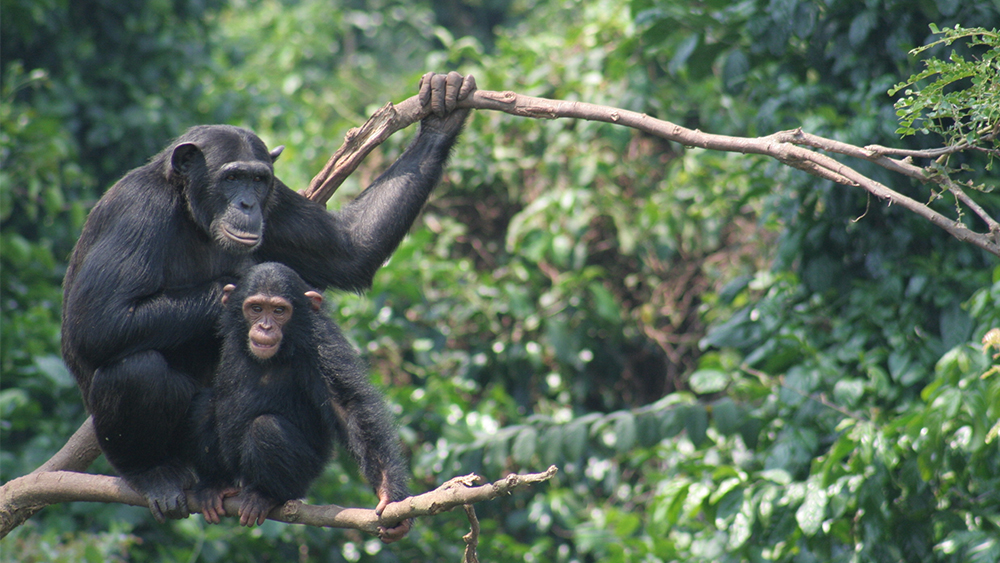An oft-repeated claim of evolutionary propaganda is that chimpanzee and human DNA are 98.5% identical. This high level of DNA similarity, which has been cherry picked from protein coding regions common to all mammals, has been used to bolster the hypothesis that humans and chimps share a common ancestor that lived about six million years ago. Based on theoretical models of human evolution and known mutation rates in both humans and chimps, anything significantly less than a 98.5% DNA similarity would destroy the foundation of the entire human evolution model.
A recent study of massive proportions, published in the prestigious journal Nature, has sequenced five great ape genomes from end to end (telomere to telomere or T2T), claiming a completion level such that “99.5% of the content of each genome has been characterized and is correctly placed.”1 In another statement on the completion level and accuracy of the paper, the authors say, “We achieve chromosome-level contiguity with substantial sequence accuracy (<1 error in 2.7 megabases) and completely sequence 215 gapless chromosomes telomere-to-telomere.”1 This incredible feat was achieved by using highly advanced long-read DNA sequencing technology combined with powerful new genome-wide assembly and alignment algorithms. The end result is a day of reckoning for the myth of human evolution—a fairy tale that, despite the new data, the authors still believe.
The bottom-line DNA similarity between humans and chimpanzees was not even mentioned in the primary 17-page publication. Instead, the data were buried in the 173-page “Supplementary Information” document found at a separate URL link from the paper itself. Specifically, the data can be found in two tables (Tables III.19 and III.20) in the Supplementary Information on pages 33–36. They distinctly claim an 85% one-to-one nucleotide autosomal (non-sex chromosomes) DNA identity for chimpanzee compared to human using haploid (1X) genomes (Table III.19) and 84% using diploid genomes—giving an even more accurate number (Table III.20). The female X chromosome identity was similar to the autosomal alignments. The male Y chromosome was markedly different at <10% identity.
These levels of 84%–85% DNA similarity between human and chimpanzee were originally predicted in several studies performed by myself at ICR in 2016 and 2018.2,3 While my studies did not involve aligning entire genomes, the sample sizes of DNA fragments were large enough to make accurate predictions that have now been confirmed by large-scale, heavily funded conventional research. Interestingly, Richard Buggs, an expert in genome evolution at the University of London Queen Mary, downloaded genome-wide DNA alignments from a public database in 2018 and ran his own DNA sequence identity analysis. Buggs concluded that “The percentage of nucleotides in the human genome that had one-to-one exact matches in the chimpanzee genome was 84.38%.”4 Now Buggs has also analyzed this new paper along with its supplemental information paper and has blogged about it himself.4
How much more information do we need to demonstrate that humans did not evolve from apes? The data clearly show we are distinct from all apes. As the Bible says, humans were uniquely created in the image of God, “So God created man in His own image; in the image of God He created him; male and female He created them” (Genesis 1:27, emphasis added). Once more, science affirms the Holy Scriptures.
References
- Yoo, D. et al. 2025. Complete Sequencing of Ape Genomes. Nature. 641: 401–418.
- Tomkins, J. P. 2016. Analysis of 101 Chimpanzee Trace Read Data Sets: Assessment of Their Overall Similarity to Human and Possible Contamination With Human DNA. Answers Research Journal. 9: 294–298.
- Tomkins, J. P. 2018. Comparison of 18,000 De Novo Assembled Chimpanzee Contigs to the Human Genome Yields Average BLASTN Alignment Identities of 84%. Answers Research Journal. 11: 205–209.
- Buggs, R. How Similar Are Human and Chimpanzee Genomes? Posted on richardbuggs.com May 6, 2025, accessed May 23, 2025.
* Dr. Tomkins is Research Scientist at the Institute for Creation Research and earned his Ph.D. in genetics from Clemson University.
Updated June 2, 2025.













